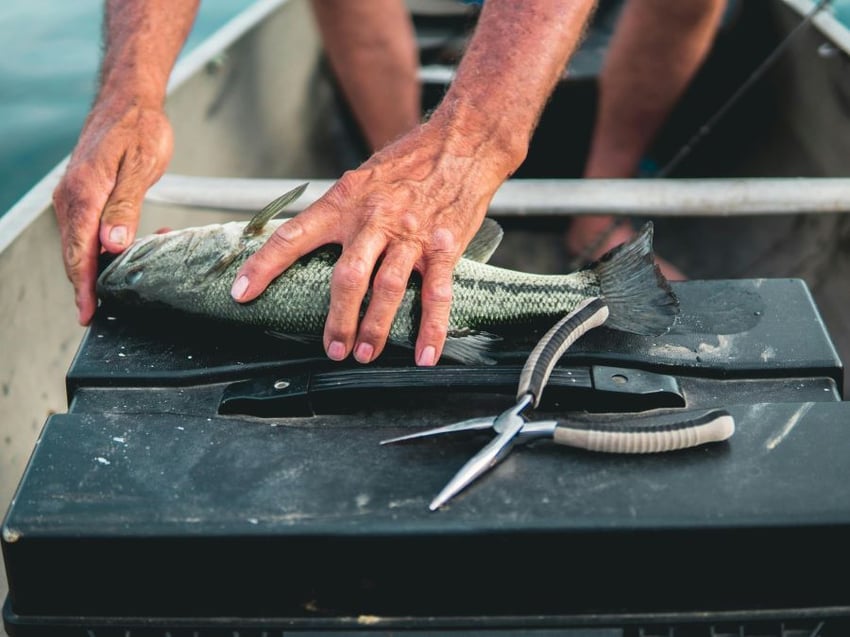The Health Benefits of Sustainable Seafood
Take outs:
- The Health Risks of Irresponsible Fish Farming: While seafood offers numerous health benefits, irresponsible aquaculture practices can pose significant risks. The overuse of antibiotics, pesticides, and antifoulants can lead to chemical residues in fish, potentially affecting human health. These chemicals can disrupt hormones, damage the liver, and even increase the risk of cancer. Moreover, overcrowded farms can spread diseases that might contaminate both farmed and wild fish populations.
- The Importance of Responsible Aquaculture for Human Health: For seafood to be truly beneficial to our health, responsible aquaculture is key. This includes using minimal chemicals, ensuring disease is properly managed, and providing fish with a natural environment. Sustainable practices help protect consumers from harmful contaminants and contribute to healthier fish populations, ensuring that seafood remains a safe and nutritious food source.
- How to Make Healthier Seafood Choices: To maximise the health benefits of seafood, it’s essential to choose sustainably farmed fish. Look for certifications like ASC or MSC, which guarantee responsible farming practices. Additionally, opt for a variety of fish types to enjoy the full range of health benefits, and always support businesses that are transparent about their sourcing and farming methods. Reducing exposure to contaminants, such as mercury, further ensures you’re consuming the healthiest seafood possible.
The Health Benefits of Sustainable Seafood:
Why Responsible Aquaculture Matters for Your Well-being
Seafood is widely recognised as one of the healthiest protein sources, packed with essential nutrients like omega-3 fatty acids, vitamins, and minerals. As global demand for seafood continues to rise, it’s crucial to consider not only the environmental impact of sourcing fish but also how it affects our health. With overfishing depleting wild fish stocks, aquaculture—or fish farming—has emerged as a vital solution. However, for aquaculture to truly benefit our health, it must be practised responsibly.
How Nutritionally Valuable is Fish?

What Are Heath Risks of Irresponsible Fish Farming?

Additionally, poorly managed fish farms can lead to the spread of diseases. If a fish farm is overcrowded or not properly monitored, disease can quickly spread, affecting not just the farmed fish but potentially contaminating wild fish populations as well. These diseases can then be transmitted to humans through consumption, posing a significant health risk.
The Importance of Responsible Aquaculture

Chemicals in Aquaculture and Their Impact on Our Health

The Role of Sustainable Certifications in Protecting Our Health

Top Tips to Maximise the Health Benefits of Eating Fish
To truly reap the health benefits of eating fish, it's important to focus not only on its nutritional value but also on the safety of the fish you consume. Here are some tips to help you make the most of your seafood choices:
Look for certifications
Choose a variety of fish
Check for transparency
Reduce your exposure to contaminants
A Healthier Future for Seafood – and Seafood Eaters!
The future of seafood relies on sustainable, responsible aquaculture that protects both the health of the fish and the well-being of those who consume them. By supporting farming practices that reduce chemical use, manage disease effectively, and safeguard vital marine ecosystems, we can ensure seafood remains a safe and nutritious food source for us and our future generations.
As consumers become more aware of the health risks associated with poorly farmed fish, the demand for sustainably sourced seafood will only continue to grow. By making mindful choices and supporting responsible aquaculture, we can all play a part in preserving seafood as a nutritious, safe, and sustainable part of our diets. After all, your health—and the future of our planet—are shaped by the choices we make today.
Information in this article was sourced from: https://wwf.org.au/what-we-do/food/farmed-seafood/
Share this
You May Also Like
These Related Stories

Mental Health for Small Business Owners

Top Tips for Healthy Eating Habits

/Brand/Logos/Kelly%20Partners%20Accountants%20Logo/Kelly-Partners-Accountants-Horizontal-Logo.webp?width=1500&height=212&name=Kelly-Partners-Accountants-Horizontal-Logo.webp)
%201.webp?width=1920&height=809&name=James%20Howard%20Building%201%20(1)%201.webp)






